2022’s Faces of financial freedom
In the final edition of the Absa/City Press Money Makeover for the year, we recap each candidate’s journey and hope that it inspires you to create your own financial freedom plan, writes Maya Fisher-French

The Money Makeover boot camp has come to an end and our candidates this year have been truly inspirational in paying off debt, making lasting lifestyle changes and facing challenging family conversations.
They are proof that the power to change your financial circumstances lies within you and that you do not have to wait for a miracle to achieve financial freedom.
THE WINNER: MPHO
THE GOAL: TO MAKE MY FOOD BUSINESS PROFITABLE
“My main financial pressure was to buy enough stock to at least run my restaurant for a week or two and to renovate so that I could start offering sit-down meals and hosting events.”
Township entrepreneur Mpho is father to a two-year-old daughter who is the apple of his eye. One of his businesses is a small take-away restaurant called Babacazoo Walk, which sells a variety of fast foods and drinks. Mpho also runs a small T-shirt printing business called Black Market Junction. He supplements his income as a personal fitness trainer.
His financial adviser, Gladnes Masia, immediately identified that Mpho’s food business was losing money. This was the reason he was unable to make ends meet. This is a common mistake by entrepreneurs; they do not have a proper handle on their finances and business cash flow. They have no idea whether they are making money or losing it.
The first goal Masia set for Mpho was to thoroughly understand his business – from accounting for every stock item to understanding the cost of each meal he served.
THE ACHIEVEMENT: TRANSFORMATION
In less than six months, Mpho turned his food business from making a loss to making a profit that can sustain him financially. He is now running his stock levels efficiently, only needing to buy stock every three or four weeks. He is also hosting events and has turned the area surrounding his restaurant into a food garden. Mpho says that he is working so hard and cleaning so much, “even my own mother would not recognise me”.
This turnaround required dedication and hard work. He also focused on small things such as making sure that each fork and knife was spotless. The vegetables he planted around the kiosk both improve the environment and produce vegetables for his business.
He identified that Wednesdays were slow days and created specials to draw in customers. As part of his beautification project, Mpho started growing citrus tree saplings from seed and planting them in his community.
Mpho can now meet his financial obligations, including maintenance for his daughter. He is paying off his outstanding accounts and has made an arrangement with the municipality.
“I am now a better father. Before, I was a loving and caring father, but financially I was struggling to help her mother. She was doing most of the things for my daughter and that was very frustrating for me because she had power over me. Before my journey started, we were fighting to a point that I went to court to file for joint custody because she was refusing me my visitation rights. We are now co-parenting as the best parents, with good systems in place for both us and the baby.”
SIX MONTHS IN NUMBERS:
Turned his business from a drain on his finances to making R10 000 profit a month;
Paid off R10 000 debt;
Went from a deficit to having R3 000 a month disposable income after meeting obligations; and
Created a will to provide for his daughter.
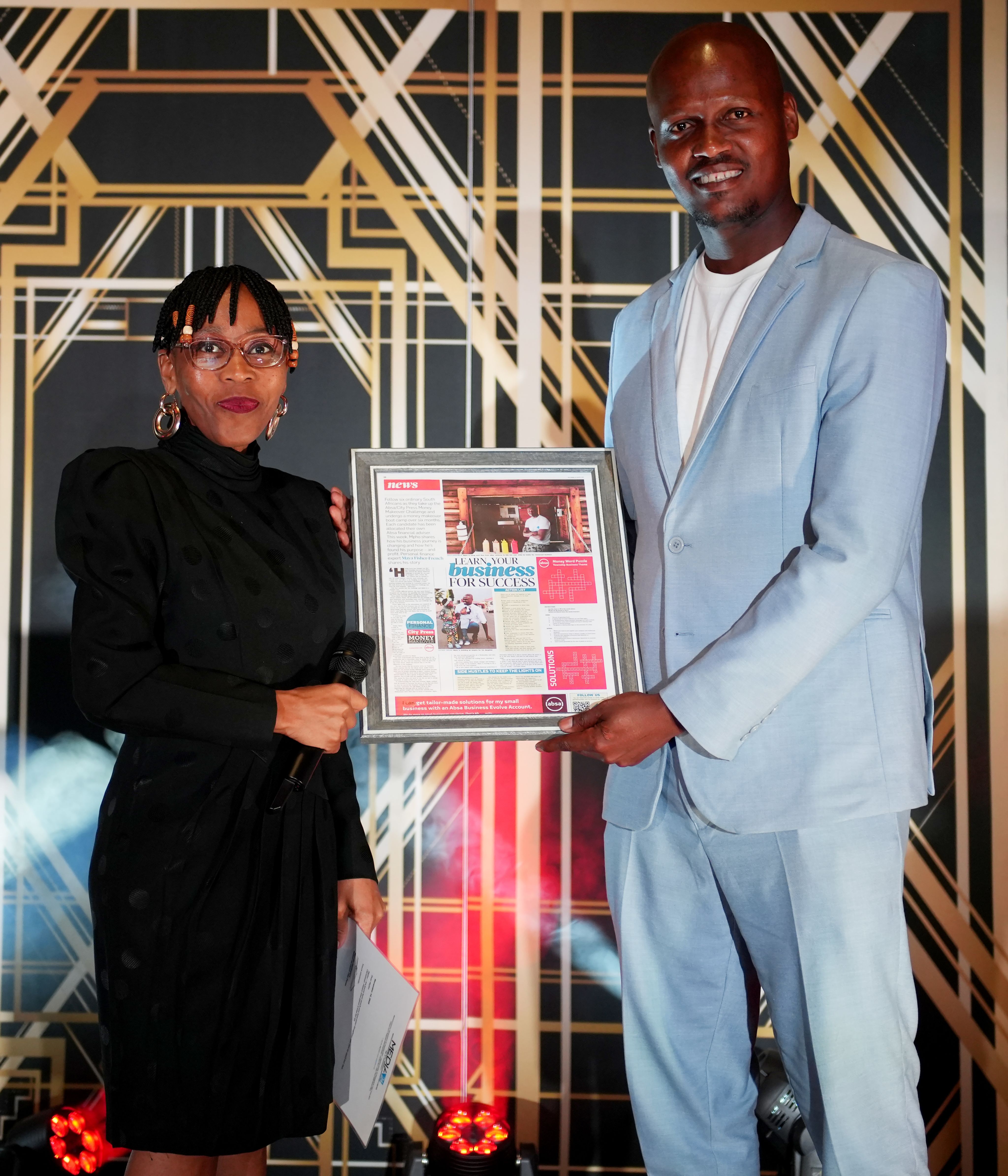
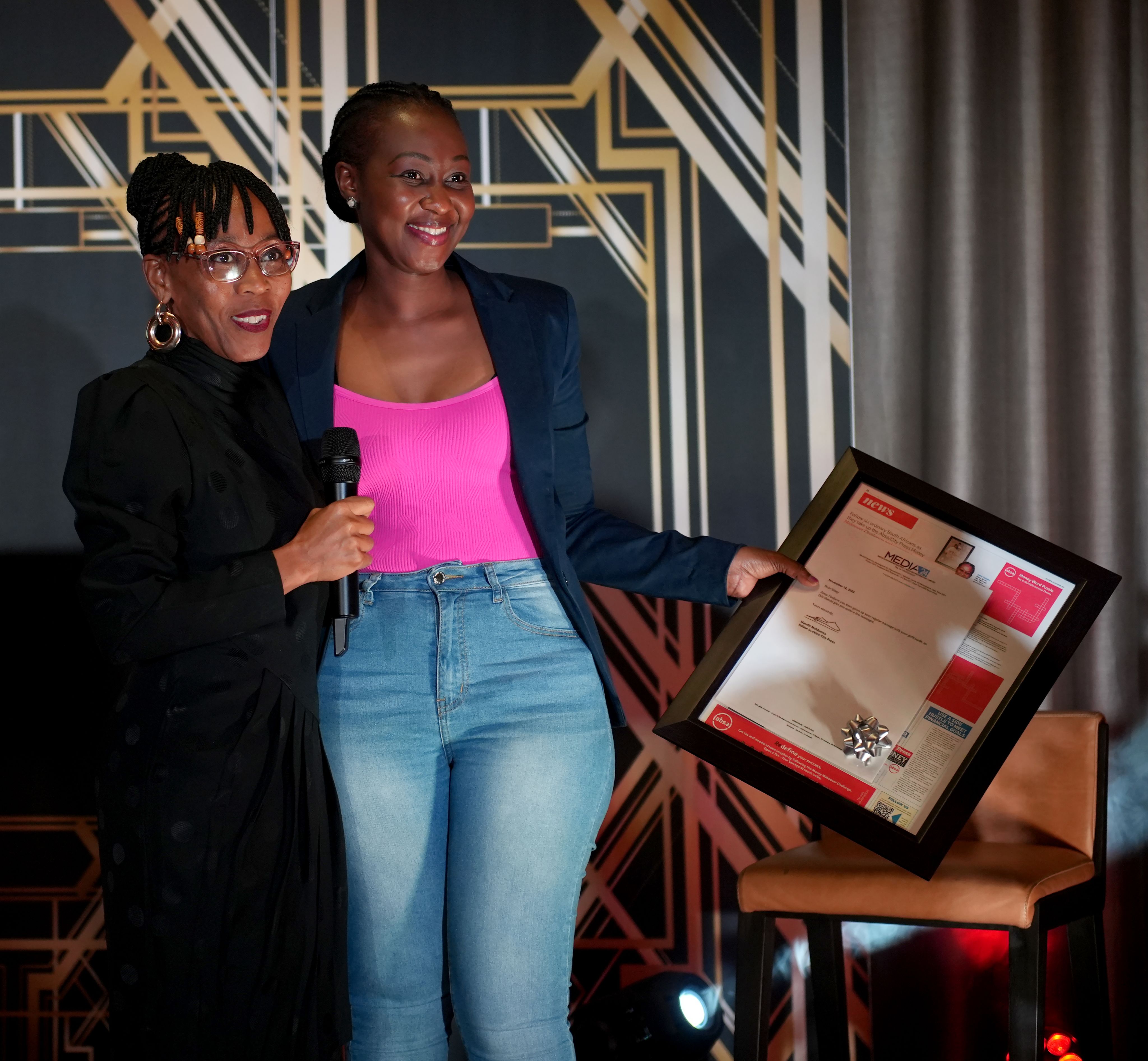
THE RUNNER-UP: ZINZY
THE GOAL: TO BECOME MONEY SMART
“I knew things were bad, but I was choosing to be oblivious to the severity of my situation. It was easier to pretend that I had everything under control.”
University lecturer Zinzy is academically smart, but when it came to her finances, she made some “ignorant financial decisions”.
Managing money is not something you learn at school or university, and without that knowledge, even well-educated people can find themselves in difficulty.
Zinzy had accumulated significant debts, which were putting her under financial pressure. Due to a misunderstanding as to how contractors are taxed, she had a significant amount of tax that she owed the SA Revenue Service (Sars). She bought a piece of land with the intention of building her dream home, but currently it is just a drain on her finances.
She also helped a family member with a loan, but that relationship went sour and she was having to make the loan repayments herself. And the father of her son stopped meeting his maintenance payment agreement.
When she entered Money Makeover, Zinzy’s monthly expenses were exceeding her income by R2 000 a month.
THE ACHIEVEMENT: COURAGE
Over the past six months, Zinzy not only improved her financial position, she also faced challenging conversations with her family. She had to set strong boundaries, hold others accountable and learn to respect herself.
Her Absa financial adviser, Phumzile Dube, had Zinzy list all her debts. This brought home to her how bad the situation had become.
Together, they discussed the numbers and decided on the priorities and the budget. Apart from cutting back on her spending, Zinzy had to face the fact that she needed to confront her brother about his failure to repay her for the car finance, as well as approach a lawyer to implement court proceedings for the maintenance order.
Raising the issue with her family and setting strong boundaries was challenging.
“I felt guilty and that I was betraying the agreement that my brother and I had. But if had the courage to join the challenge and have my financial woes out there for the world to know, there was no point in hiding this one from my siblings.”
Zinzy had other tough conversations, such as explaining to her son that he would no longer go to his weekly swimming lessons and telling her partner that he had to take over payment for the internet service at his parents’ house.
She also faced her creditors. She believed that it was fruitless to try to negotiate a payment agreement as she had ignored them for so long, yet she was pleasantly surprised: “The big company that I feared was out to get me is made up of humans who understand the difficulties of life and deal with their customers in a humane manner. I was able to [make] a payment arrangement.”
She reviewed her will to include a testamentary trust and has discussed with her family the need for them to have a will in place.
This is important, as they will be inheriting the family home and they need to have a clause that deals with this inheritance.
“I no longer dodge unknown phone numbers in fear that they may be a debt collector.”
NUMBERS IN SIX MONTHS:
Reduced her expenses by R2 000;
Saved R5 000 worth of Shoprite vouchers;
Saved R2 500 towards an emergency fund;
Paid off R22 000 towards her Sars debt;
Paid R33 000 towards an outstanding home loan;
Paid R22 000 towards car finance; and
Made a payment arrangement for municipal debt.
MOTSEI
THE GOAL: TAKING A MICRO BUSINESS TO THE NEXT LEVEL
“My main financial pressure is to expand the current business by buying more equipment and to add other revenue-generating services to the business.”
Motsei is the owner of VIP Flushable Mobile Toilets, which provides toilets for events and building sites in Kroonstad in the Free State. She was looking to expand her micro-business.
“I do believe we can grow it further and turn it into a great business empire, create more job opportunities and become a go-to ablution facility in the future.”
Motsei lost her husband in a car accident several years ago and she felt the responsibility of providing financial security to her family. She has two adult daughters, one of whom she still supports while she studies. She is also the guardian to her brother’s son, who has a disability.
THE ACHIEVEMENT: DIVERSIFICATION
Motsei worked with Absa enterprise banker Quentin Gibbens to create a formal business plan and understand her expenses and cash flow. The most important aspect was separating her personal and business finances. This allowed her to better understand the profitability of her business by paying herself and her hearing-challenged nephew a salary. This gave her nephew a great sense of empowerment.
As part of her diversification plan, she identified an opportunity to supply fridges to the same events that were hiring her toilets. She saved R48 000 towards a fridge and a stretch tent to rent out for events. She will have 100% return on investment after eight events, which Motsei believes will be done in four months. Her next step is to start providing toilets to construction sites.
While Motsei has no debt and could have fast-tracked her business by taking a home loan against a paid-up property, she has decided to build the business through cash flow and financial discipline.
Motsei has drawn up a will and discussed the business succession with her daughters. She has taken out life cover to provide for her liabilities. She has reviewed her retirement fund and will be contributing from next year.
“Separating my personal and business finances was a very important lesson. It is something I need to keep working at.”
NUMBERS IN SIX MONTHS:
Built up R12 000 in her emergency fund;
Saved R15 000 as capital for her business; and
Purchased a fridge and tent worth R48 000.
WISANI
THE GOAL: FINDING SOME BREATHING SPACE
“I have all these debts because I was trying to balance the cost of living as the sole breadwinner at home. Everything is weighing on me without the help of anyone.”
Wisani is in his early thirties and works for local government. Like many people, his household income was affected by the Covid-19 lockdown and his partner lost her job. With two young children to support, the household was under financial pressure.
Wisani had committed to new car finance before the loss in household income. To make ends meet, he took out a personal loan with a microlender.
This, combined with the car finance and household bills, put in him a situation where he was struggling to make repayments.
Wisani has a bonus due this month that will settle the loan, however, he had to make sure that he was able to get to November without defaulting.
THE ACHIEVEMENT: FREEDOM FROM DEBT
Wisani has done extremely well, considering his limited income options after his wife lost her job. By working hard at reducing his spending, he was able to find additional funds so he could meet his financial obligations. This required a serious mind shift and he had to give up his designer jeans and Woolworths wines.
As he was able to settle some smaller debts and meet his monthly commitments, his bonus will be used to settle the microloan. With the loans paid off, Wisani has an additional R4 300 available to settle the rest of his debt. He expects to have settled all short-term debt by February. Before Money Makeover, Wisani was spending R12 for every R10 he earned. Now he is spending R7 for every R10 of earnings.
“If I had done a budget before I took out that loan, I would not have needed to borrow the money.”
THE NUMBERS IN SIX MONTHS:
Paid off R27 000 of debt (before his bonus); and
Found R1 000 a month in his stricter budget.
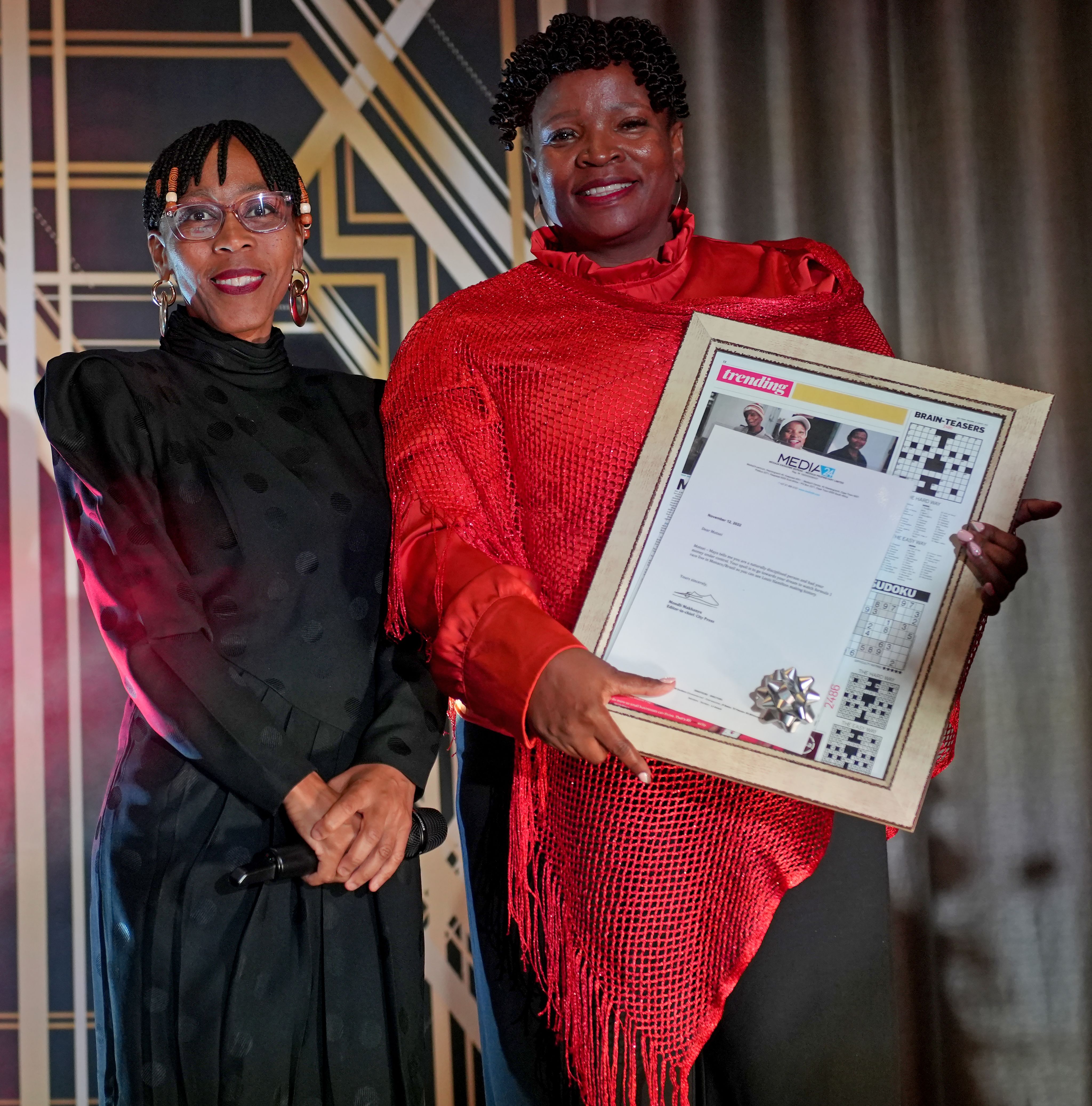
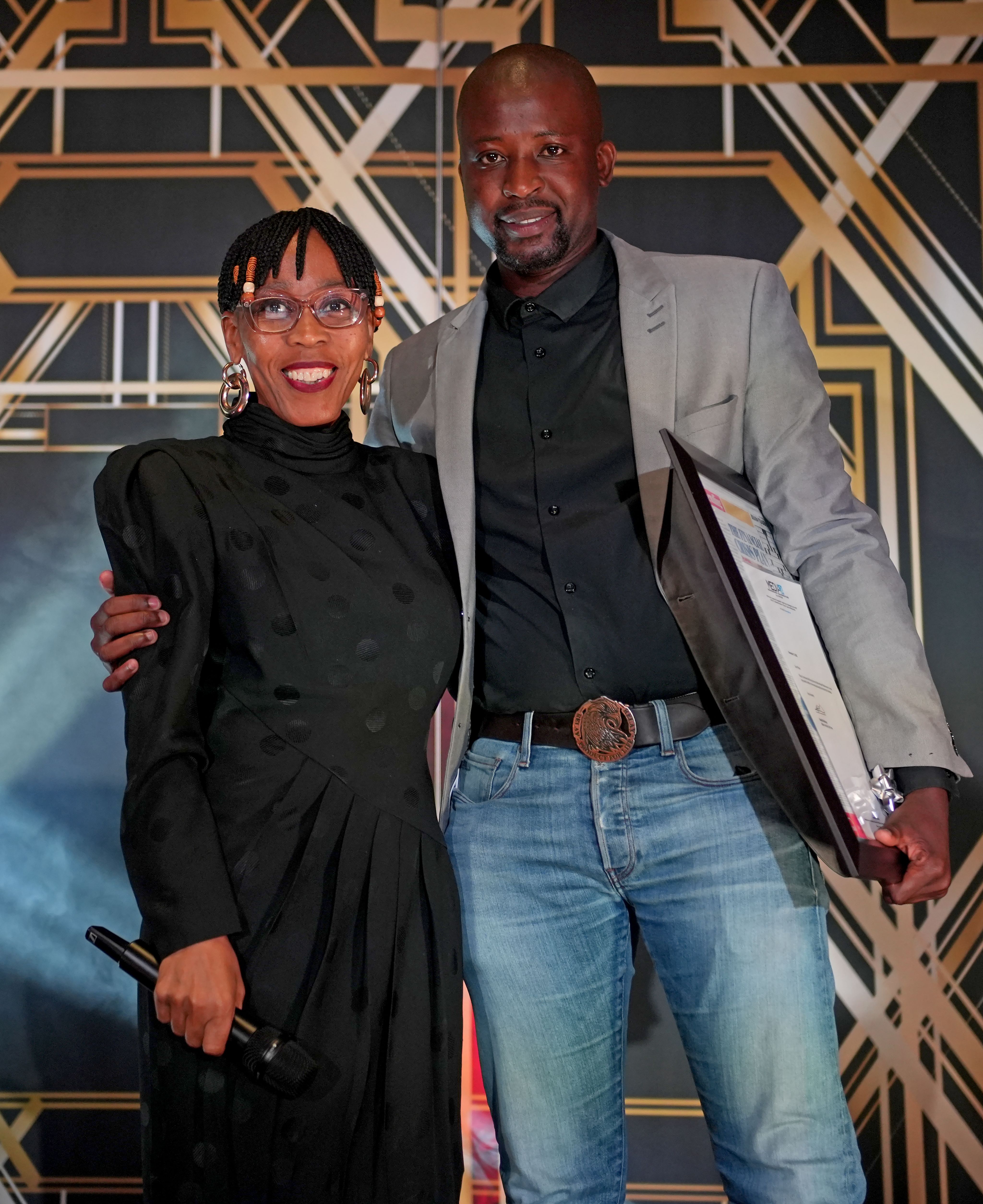
SANDRA
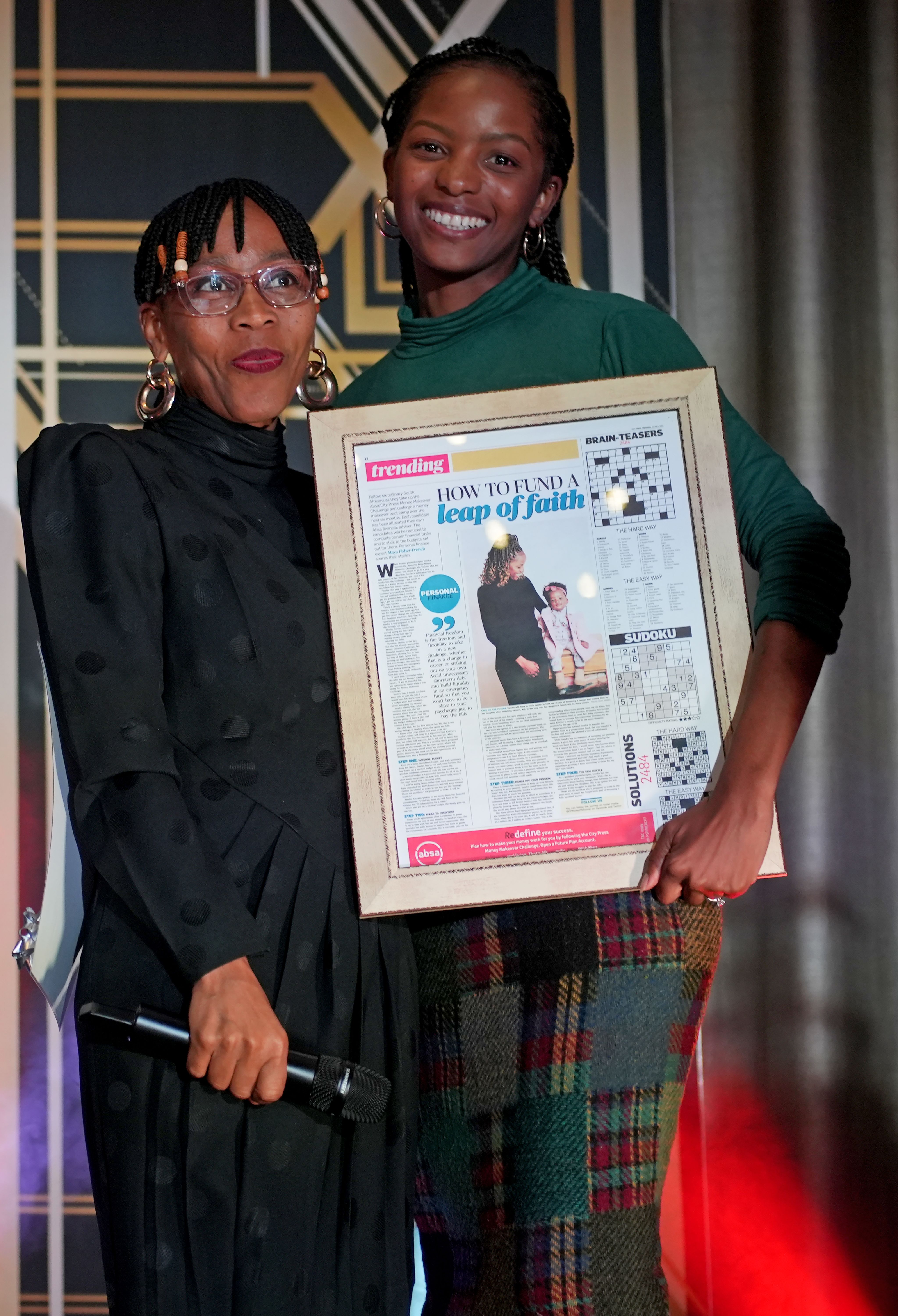
THE GOAL: TO HAVE A HEALTHY RELATIONSHIP WITH MONEY
“It had come to the point where I had to be honest with myself that I simply don’t know how to manage money properly.”
Sandra is a 30-year-old candidate attorney who changed careers during the Money Makeover Challenge. She is mother to a two-year-old daughter and her fiancé works abroad, leaving the family finances to her. She had been struggling to manage her finances for four years before she entered the challenge, with each year getting worse than the one before. Things had got to a point where Sandra felt that she simply did not know how to manage money properly. Her partner would send money home and she would end up using it for things other than what it was intended for.
THE ACHIEVEMENT: CONTROL
Sandra’s relationship with money has changed. By understanding her spending patterns, she was able to prioritise money for meeting the household needs. She also learnt to manage her love of online shopping by putting items in the cart without checking them out.
Sandra changed careers and had to live on a lower salary. Rather than touching her pension fund, she made cuts to her spending and lived on a “survival” budget.
She managed to save more than R40 000. She decided to focus on saving rather than accelerating her debt repayments because she knew that her husband would be off contract for two months and the couple would have needed liquid funds for that period. Previously, they would have just lived off a credit card.
“The cut in salary was a blessing. I realised that I could survive on less. I am going to mentally stay on earning a lower salary and use the increase in salary to pay off the debt quickly. If I didn’t have my finances in order, I would have had to say no to the legal career.”
She has also put a will in place to provide for her daughter.
THE NUMBERS IN SIX MONTHS:
Saved R40 000 to meet the shortfall when her husband’s contract ended; and
Reduced her living expenses by R4 000 to live on a “survival” budget.
SANET AND MARIUS
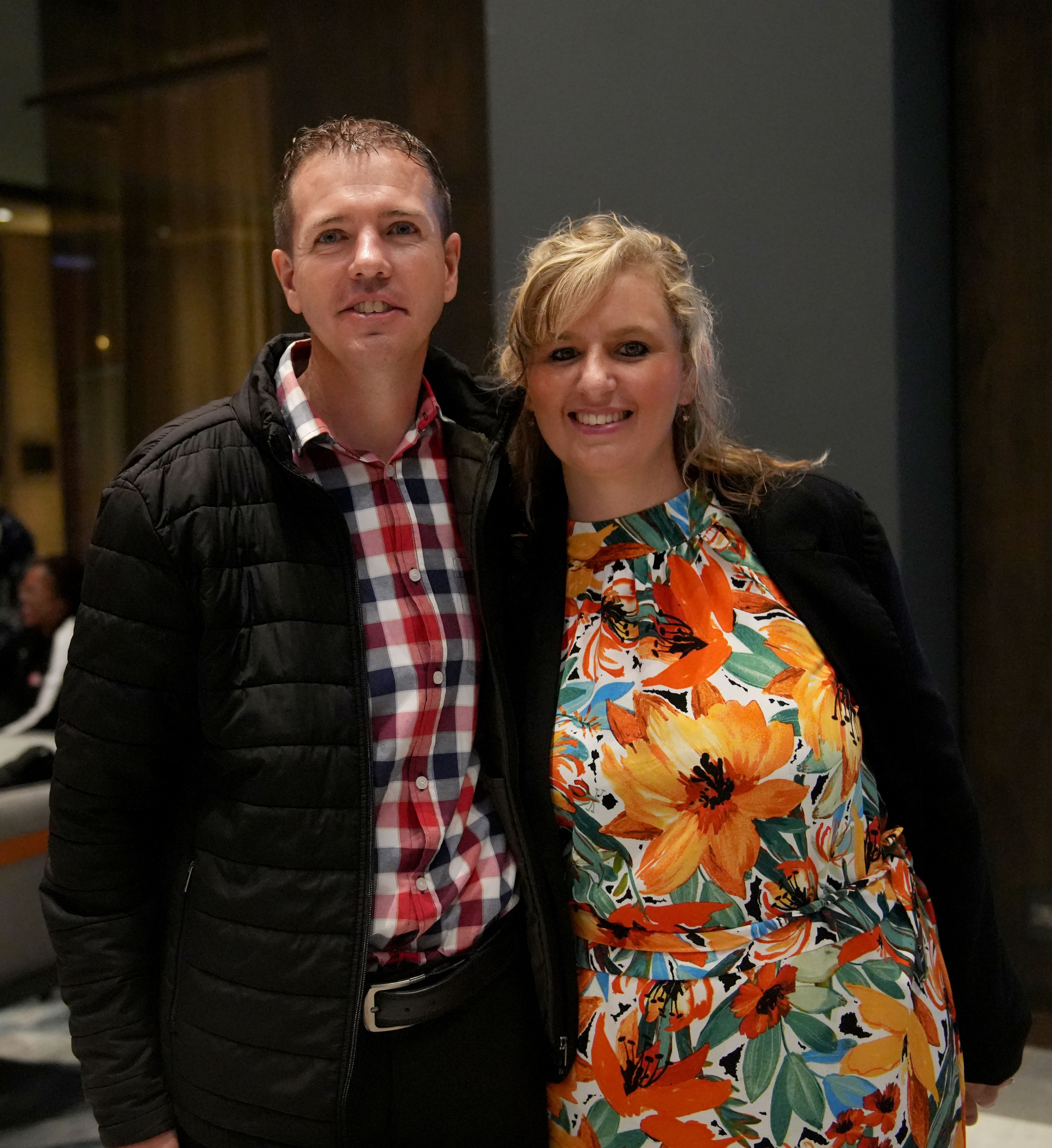
THE GOAL: FINANCIAL FREEDOM AS AN ANNIVERSARY GIFT
“The world is a real roller coaster. We have to provide not only for ourselves, but also for our parents.”
Sanet and Marius joined the Money Makeover Challenge as their 10th anniversary gift to themselves. With many family obligations, the couple had bought a food truck franchise as a back-up or sideline income. The business was not making money and was putting them further into debt each month. Their investment in a rental apartment was also adding to their financial pressures. In addition, the couple had taken a personal loan to support Sanet during her maternity leave.
THE ACHIEVEMENT: FRANCHISE-FREE
Sanet and Marius benefited significantly from the programme. With the help of Absa adviser Pieter Myburgh, they were able to exit their franchise agreement, putting R5 000 a month back into their budget. Absa also provided a consolidation loan, which has reduced their monthly payments by R2 000.
The couple worked hard to cut expenses and identified “unconscious spending”, such as the R1 000 a month Marius was spending on buying lunch for work and spending R300 when they popped in to the shops for milk and bread because they ended up buying treats for their daughter.
“Despite fuel and interest rate increases, we can now breathe. Debt counselling is not on the cards, as it was six months ago.”
THE NUMBERS IN SIX MONTHS:
Built up R10 000 in emergency savings;
Paid off R4 000 on a personal plan;
Paid off Sanet’s overdraft account of R9 000; and
Settled all their doctors’ accounts in full.
If you really want to get your finances in order, you have to start tracking your spending. If you cannot commit to that, it is unlikely you will be able to reach your goals.
Follow the journey – and join in – @CPMoneyMakeover on Facebook and Twitter
Absa Enterprise Development assists SMEs with access to business development support, markets access and access to funding based on certain criteria’s being met. For further information on Absa Enterprise Development you can email ed@absa.africa
You can follow the story on social media #CPMoneyMakeover

Facebook: @CPMoneyMakeover

Twitter: @CPMoneyMakeover
Subscribe below for the Money Makeover Newsletter















